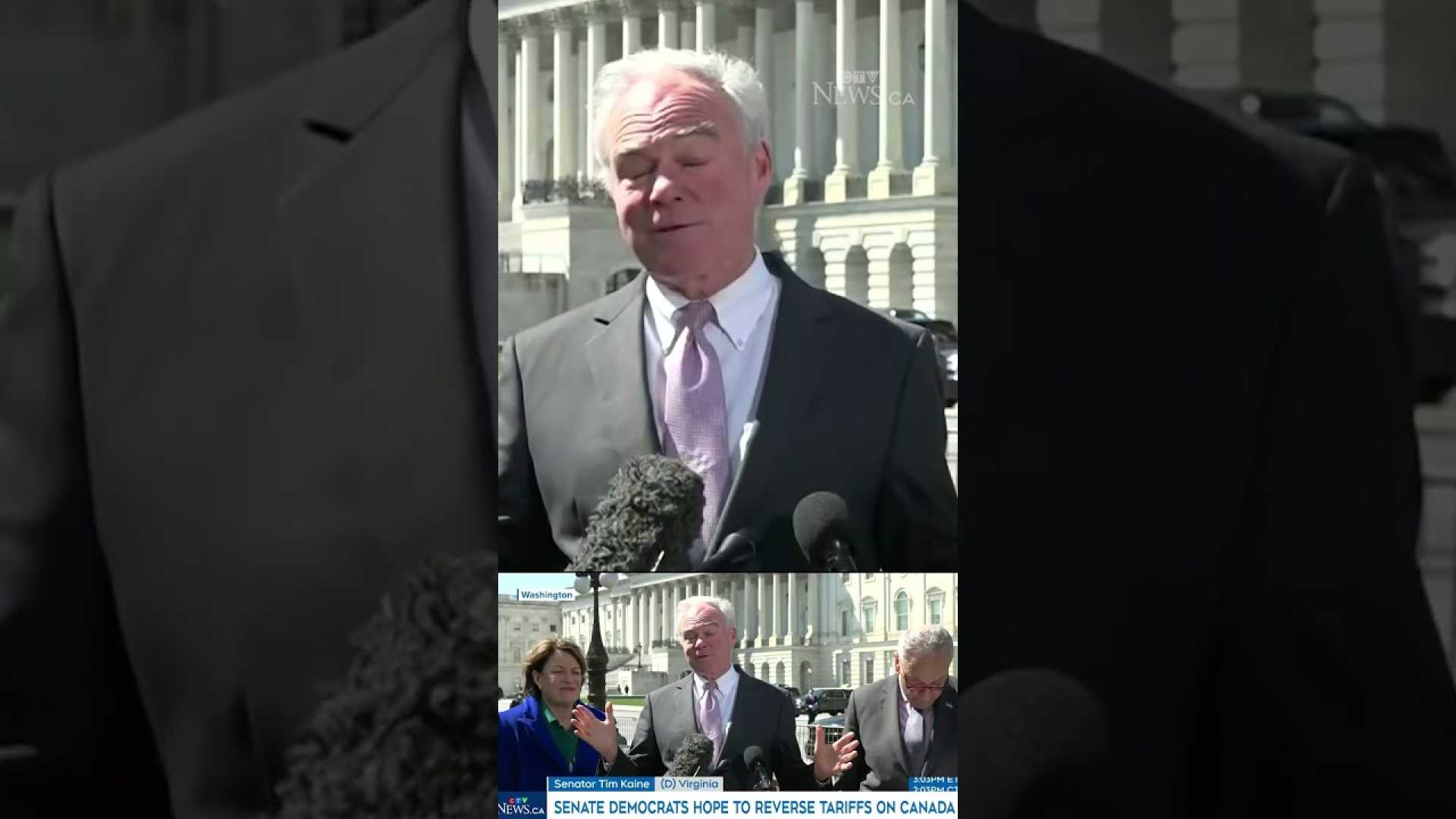Politics
Senate Vote Tests Republican Unity on Trump’s Tariffs Against Canada

WASHINGTON (AP) — As President Donald Trump readies to implement new tariffs on Canadian goods, Senate Democrats are compelling Republican support to face a crucial test this week. The proposed vote aims to overturn the emergency declaration that justifies these tariffs, which Trump has labeled an essential move to free the U.S. from foreign dependence.
Trump has dubbed April 2 as “Liberation Day,” highlighting his administration’s ongoing trade tensions that have drawn both support and concern from Republicans. According to Democrats, the tariffs on Canada may worsen economic strains by inflating costs on American consumers and businesses alike.
“I really relish giving my Republican colleagues the chance to not just say they’re concerned, but actually take action to stop these tariffs,” said Senator Tim Kaine, D-Va., who is behind the resolution opposing the tariffs set to be voted on.
Kaine’s measure would dismantle the emergency declaration Trump implemented in February 2025, under which these tariffs were authorized as a punitive measure against Canada for its alleged insufficient crackdown on illegal drug imports. Although some Republicans are uneasy about the tariffs, many have remained loyal to Trump’s agenda as the stock market reacts nervously to potential trade disruptions.
According to Customs and Border Protection data, only a small fraction of fentanyl, about 43 pounds seized last fiscal year, arrived from Canada, compared to over 21,000 pounds from Mexico. Critics caution that the tariffs would escalate costs for constructing homes and essential goods.
Senate Democratic Leader Chuck Schumer, D-N.Y., condemned the tariffs as “a tax increase on American families — plain and simple,” arguing they disproportionately burden everyday citizens to benefit wealthy donors.
While acknowledging the need to address trade issues with nations like China, Schumer noted that imposing tariffs on a close ally like Canada is counterproductive.
“These tariffs are creating uncertainty within the market, which is detrimental,” Schumer stated during a news conference.
Trump, however, maintains a strong stance on the trade tariffs, claiming that the threat posed by fentanyl entering through Canada is considerable and that action is necessary to combat the crisis. “We are making progress to end this terrible Fentanyl Crisis,” Trump tweeted, urging Senate Republicans to support the emergency declaration’s maintenance.
Senator Susan Collins, R-Maine, expressed reserved support for Kaine’s resolution, emphasizing the detrimental impact of tariffs on Maine’s economy, given its longstanding trade relationship with Canada. Collins stated that Canadians are allies, not adversaries, and thus punishing them with tariffs makes little sense.
Senate Majority Leader John Thune, R-S.D., expressed caution, stating, “We’re awaiting to see what the president will announce regarding tariff policy. What impacts those policies have shouldn’t influence votes.”
Despite some Republican senators expressing doubts about the tariffs, Trump’s allies in the Senate continue to champion his trade strategies. Republican Senator Steve Daines from Montana raised concerns about the tariffs negatively impacting farmers, who often suffer first in trade disputes.
“I’m keeping a close eye on all these tariffs because oftentimes the first folks that are hurt in a trade war are your farmers and ranchers,” Daines noted.
As the Senate gears up for vote day, both sides of the aisle recognize the stakes involved. The outcome may set a precedent for how the Republican party navigates future trade relations under Trump’s tariff-heavy policies. The resolution requires a simple majority to pass. Should it succeed, the Republican-controlled House of Representatives will also need to weigh in.
Associated Press writer Kevin Freking contributed to this report.












